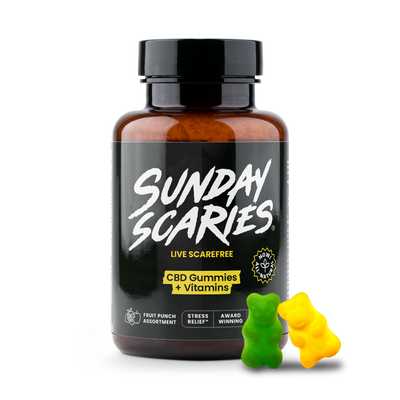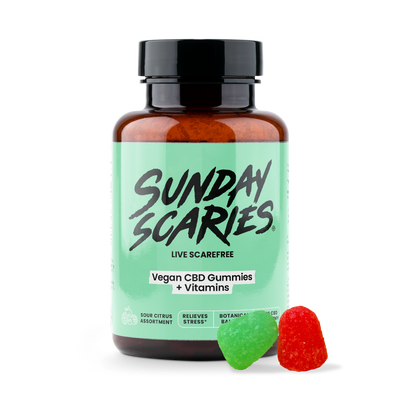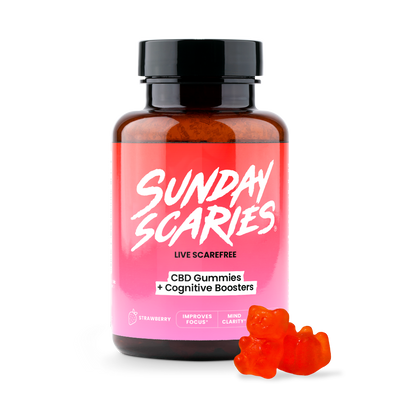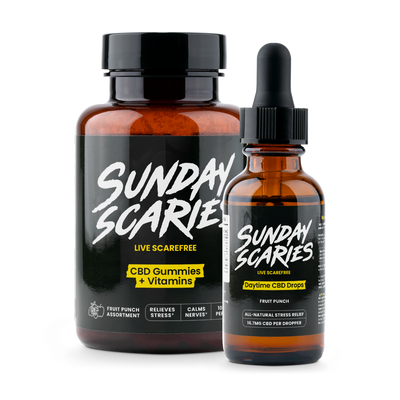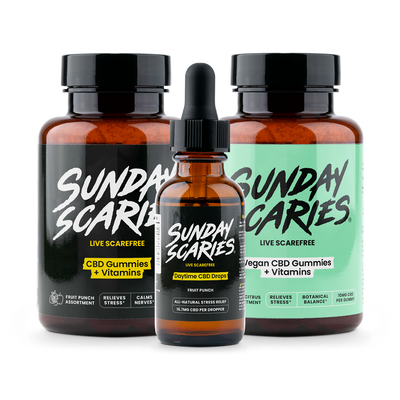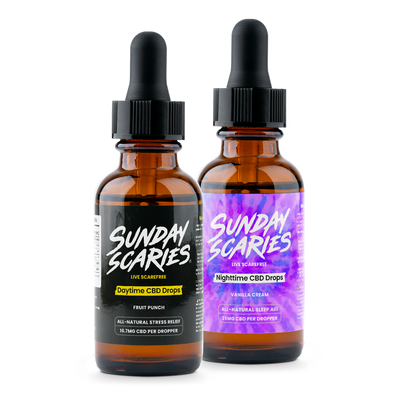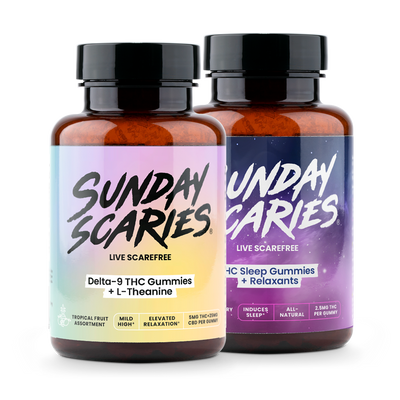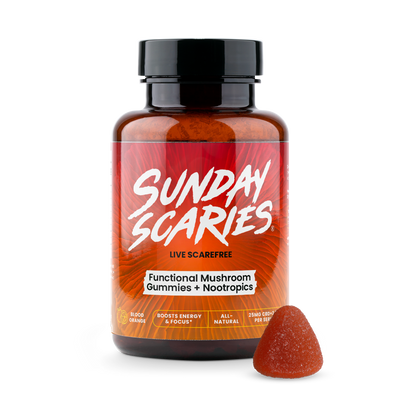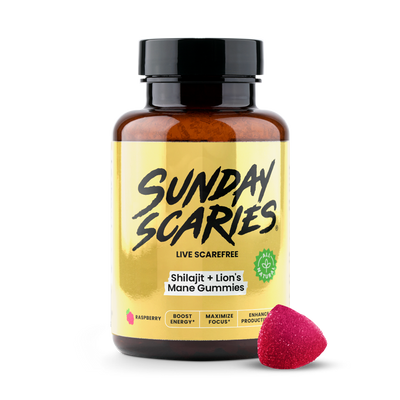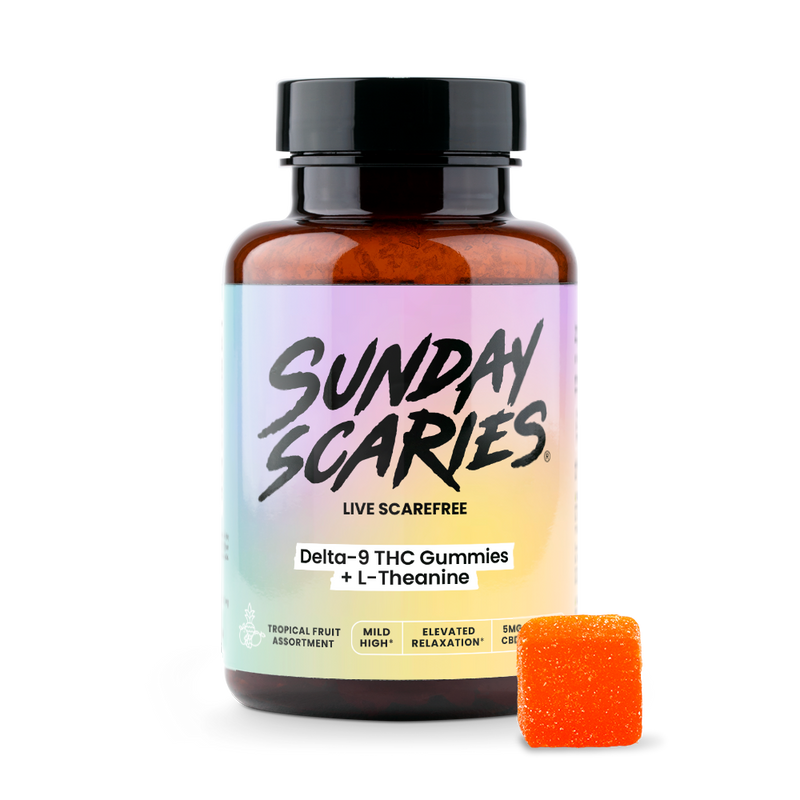
Are THC Gummies Safe?
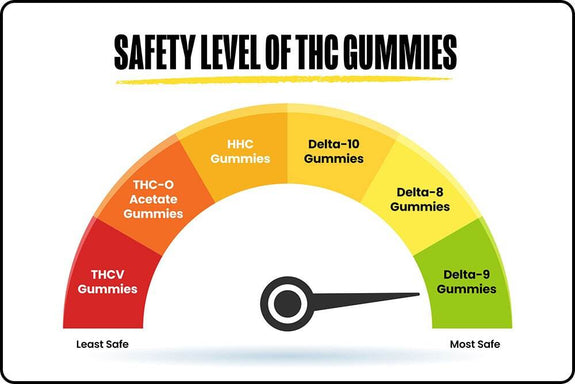
Since the marijuana boom and the 2018 Farm Bill was signed unleashing a wave of hemp-derived products the popularity of THC gummies has skyrocketed. With this ascension, a common question always pops up: Are these THC gummies safe for consumption?
THC, or tetrahydrocannabinol, is the psychoactive component of cannabis, and its inclusion in edible products like gummies has sparked both interest and concern.
This article reveals the safety of different types of THC gummies, including Delta-8, Delta-9, Delta-10, and other variants.
Each type has unique properties, legal considerations, and potential health implications that consumers should be aware of.
An Introduction to THC Gummies
To begin, it's important to note the distinction between marijuana-derived THC gummies and hemp-derived THC gummies.
The former is still a schedule 1 narcotic and federally illegal. While it is medically and recreationally legal in certain states, these gummies cannot be shipped across state lines and is still a controlled substance with the federal government.
The latter is federally legal due to the signed 2018 Farm Bill which acted to galvanize the hemp industry. THC gummies that are hemp-derived and contain less than .3% THC by dry weight can be shipped across state lines and they are not considered a controlled substance. While certain states are trying to pass their own laws surrounding these gummies, they remain federally legal.
Is THC from Marijuana and THC from Hemp the Same?
Yes, THC from marijuana and THC from hemp are chemically identical. The main differences have to do with the legality of these products and the THC concentration within the two plants.
Regardless of the legal status and source, the THC molecule itself remains the same and produces the same effects on the body and mind when consumed.
The Safety of Different Types of THC Gummies
THC gummies come in a variety of forms, each containing different types of THC. These are: Delta-8, Delta-9, Delta-10, THC-O, HHC, THC gummies for sleep, and THCV.
They all have different chemical structures, potency levels and safety concerns which we'll outline below.
1. Delta-8 THC Gummies: A Mild but Unregulated Option
What is Delta-8 THC?
Delta-8 THC is a cannabinoid found in cannabis plants, similar to the more well-known Delta-9 THC, but with some crucial differences.
Delta-8 is often described as offering a milder high compared to Delta-9, with fewer intense psychoactive effects. Anecdotal evidence reveals that users experience about 50% of the "high" compared to Delta-9. This makes it appealing to those seeking a more subtle experience.
Safety Considerations for Delta-8 THC Gummies
While Delta-8 THC gummies are often marketed as a safer alternative due to their milder effects, the safety of these products largely depends on how they are produced.
Delta-8 is typically synthesized from CBD through a chemical process, which can involve harsh chemicals if not done correctly.
The lack of regulation in the Delta-8 market raises concerns about the purity and safety of the final product. Contaminants, residual solvents, and inconsistent THC levels are potential risks.
This is why it's extremely important to check Certificates of Analysis from third party labs, which most credible brands will offer on their websites.
Moreover, the long-term effects of Delta-8 THC are not well-studied, and its impact on health is still largely unknown. Users should be cautious, especially since some states have started to regulate or ban Delta-8 products due to safety concerns.
Conclusion
While Delta-8 THC gummies might offer a gentler experience, the lack of regulation and potential for contaminants means consumers should approach these products with caution. Only purchase from reputable sources that provide third-party lab testing results.
2. Delta-9 THC Gummies: The Standard and Potent Choice
What is Delta-9 THC?
Delta-9 THC is the most well-known and widely used form of THC. It is the primary psychoactive component in cannabis and is responsible for the "high" that users experience. Delta-9 THC is also the type most commonly found in traditional marijuana products and most of the hemp-derived, delta-9 gummies online.
- For more information, check out our resource: What is Delta-9?
Safety Considerations for Delta-9 THC Gummies
Delta-9 THC gummies are popular due to their potent effects, but this potency can also be a double-edged sword.
The primary safety concern with Delta-9 THC gummies lies in their psychoactive effects, which can be overwhelming for inexperienced users or those with a low tolerance. Overconsumption can lead to intense anxiety, paranoia, and in some cases, hallucinations and psychotic episodes.
Another important aspect to consider is dosage. Delta-9 THC gummies can vary widely in their THC content, and without proper dosing, users can easily consume more than intended. This is particularly concerning with homemade or unregulated products where the THC content might not be accurately labeled.
Additionally, there are potential physical health risks associated with regular use of Delta-9 THC, including respiratory issues when smoked or vaped, and possible cognitive impairments with long-term use. However, when consumed in edible form, the risk of lung damage is eliminated, though the risk of overconsumption remains.
Conclusion
Delta-9 THC gummies are effective and widely used, but their potency requires careful dosing and a good understanding of one's tolerance. As with any THC product, it's essential to buy from reputable sources that provide clear labeling and third-party testing.
3. Delta-10 THC Gummies: The Newcomer with Unclear Safety
What is Delta-10 THC?
Delta-10 THC is a relatively new cannabinoid that has started to gain attention in the market. Like Delta-8 and Delta-9, Delta-10 is a form of THC, but it is less psychoactive than both Delta-8 and Delta-9 and is often compared to a milder, more uplifting experience. Anecdotal evidence has also revealed that Delta-10 can provide a more energetic experience, so it's used more in social situations versus as a sleep aid.
Safety Considerations for Delta-10 THC Gummies
The main safety concern with Delta-10 THC gummies stems from the fact that this cannabinoid is not naturally abundant in cannabis plants and is typically synthesized in a lab.
The process of creating Delta-10 THC can involve harmful chemicals, and if not properly purified, the final product could contain dangerous contaminants.
As Delta-10 is a newer cannabinoid, there is limited research on its effects and safety. Consumers should be aware that the lack of regulation means that the quality of Delta-10 products can vary significantly, and some products might not contain the advertised amount of THC or could be contaminated with harmful substances.
To add to this, the effects of Delta-10 THC are not as well-documented as those of Delta-8 and Delta-9, making it difficult for users to predict how they might react to these gummies. The potential for side effects such as dizziness, anxiety, or altered mental state exists, especially if consumed in higher doses.
Conclusion
Delta-10 THC gummies represent a new frontier in the THC market, but their safety remains largely unproven. Consumers should exercise caution, ensuring they purchase from reputable brands that offer transparent lab results.
4. THC-O Acetate Gummies: The Potent Synthetic Option
What is THC-O Acetate?
THC-O acetate, often referred to simply as THC-O, is a synthetic cannabinoid that is reportedly much stronger than Delta-9 THC. Anecdotal evidence has revealed that it is approximately 2-3 times stronger than Delta-9.
It's created through a complex chemical process and is not found naturally in cannabis. So, for those purists out there, this is not the best option. THC-O is often marketed as a more potent alternative for those looking for intense effects.
Safety Considerations for THC-O Acetate Gummies
The primary safety concern with THC-O acetate gummies is their potency. Because THC-O is much stronger than Delta-9 THC, even a small dose can lead to intense psychoactive effects. This can be dangerous for users who are not prepared for the strength of the experience, potentially leading to panic attacks, hallucinations, or other severe reactions.
THC-O acetate is definitely not the beginner's choice.
Additionally, because THC-O is synthesized through a chemical process, there is also a significant risk of contamination if the product is not made correctly. The chemicals used in the synthesis of THC-O can be harmful, such as: ethanol, acetic anhydride or sulfuric acid. Without proper purification, these chemicals could remain in the final product.
Another concern is the lack of research on THC-O. As a relatively new product, there is very little scientific data on its long-term effects or safety. This uncertainty means that users are taking a risk with each consumption, as the full range of potential side effects is not yet known. THC-O is one of the most understudied forms of THC gummies.
Conclusion
THC-O acetate gummies are extremely potent and should be approached with caution, especially by those unfamiliar with THC or those with lower tolerance levels. The lack of regulation and potential for harmful contaminants also makes these products risky. As always, purchasing from reputable sources that provide third-party lab testing is crucial.
5. HHC Gummies: A Legal Grey Area with Varying Effects
What is HHC?
HHC, or hexahydrocannabinol, is a hydrogenated form of THC. It's relatively new to the market and is often described by users as being less potent than Delta-9 THC but more potent than Delta-8. HHC is often sold as a legal alternative to THC in states where THC products are restricted. Many brands sell these products as a loop-hole alternative to widely accepted hemp-derived delta-9 gummies.
Safety Considerations for HHC Gummies
Like other synthetic cannabinoids, HHC is produced through chemical processes, which can introduce potential safety risks. The primary concern is the purity of the final product. If not properly synthesized and purified, HHC gummies could contain harmful chemicals or contaminants.
Another consideration is the variability in effects. Because HHC is not as well-studied as Delta-9 or even Delta-8, users may experience unpredictable results. Some users report a milder high, while others find it comparable to Delta-9 in intensity. This variability can make it difficult for consumers to dose accurately and safely.
Experience-wise, many users describe HHC as being very balanced and smooth high while also remaining clear-headed. So it's often used when you want a subtle high while also being able to perform work or read.
Furthermore, because HHC is a newer product, there is limited research on its long-term effects and safety. This lack of data makes it challenging to fully assess the risks associated with regular consumption of HHC gummies.
Conclusion
HHC gummies occupy a legal grey area and offer a different experience from more well-known THC variants.
However, the safety concerns related to their production and the variability in effects make them a less reliable choice. Consumers should be particularly cautious and prioritize products with transparent manufacturing practices and lab testing.
6. THCV Gummies: The Appetite Suppressant with Unclear Risks
What is THCV?
THCV, or tetrahydrocannabivarin, is a cannabinoid that has gained attention for its potential appetite-suppressing effects, earning it the nickname "diet weed."
Unlike Delta-9 THC, which is widely known to increase appetite, THCV is believed to reduce hunger, making it popular among those looking to manage their weight.
Safety Considerations for THCV Gummies
The most significant safety consideration with THCV gummies is the lack of extensive research on their effects. While some anecdotal research suggests that THCV could help with appetite control and even have potential benefits for metabolic disorders, the long-term safety of THCV use is not well-understood and these claims remain unsubstantiated at the FDA level.
Additionally, the concentration of THCV in gummies can vary, and high doses may lead to unintended side effects, such as anxiety or an overly intense psychoactive experience. As with other THC variants, the purity and quality of THCV gummies depend on the manufacturing process. Poorly made products may contain contaminants or inaccurate THC levels.
Another concern is the interaction between THCV and other cannabinoids. In some cases, combining THCV with other forms of THC might alter its effects, leading to unpredictable results. Consumers should be cautious when using THCV gummies, especially if they are already using other cannabis products.
Conclusion
THCV gummies offer a unique appeal due to their potential appetite-suppressing effects, but the lack of research on their safety and efficacy means consumers should proceed with caution.
What are the Safest THC Gummies?
The safest THC gummies are Sunday Scaries Delta-9 gummies because the hemp is grown using organic methods in Greeley, Colorado, the labeling is accurate & clear, and all batches come with third-party lab testing to ensure purity, accurate dosing, and the absence of contaminants like pesticides, heavy metals, and residual solvents.
Altogether, Delta-9 THC gummies are considered the safest because Delta-9 is the most well-researched and widely understood form of THC and the psychoactive effects are the most reliable.
This extensive research means there is a better understanding of its effects, proper dosing, and potential risks, allowing users to make more informed decisions.
Additionally, Delta-9 THC products are typically subject to stricter regulations in legal markets, which helps ensure their safety and consistency.
- For a more comprehensive review, check out our resource: Are Delta-9 Gummies Safe?
Safety Level of THC Gummies, In Order
The following list shows all THC gummies in order of how safe they are, with 1. Delta-9 Gummies being the most safe and 6. THCV Gummies being the lease safe.
1. Delta-9 Gummies
2. Delta-8 Gummies
3. Delta-10 Gummies
4. HHC Gummies
5. THC-O Acetate Gummies
6. THCV Gummies
Frequently Asked Questions
Are THC Gummies Bad for You?
THC gummies are generally good for you, but can be harmful if overconsumed, especially for users who are younger, have medical conditions or mental health issues. They should always be used responsibly. For a complete breakdown, check out our resource: Are THC Gummies Bad for You?

